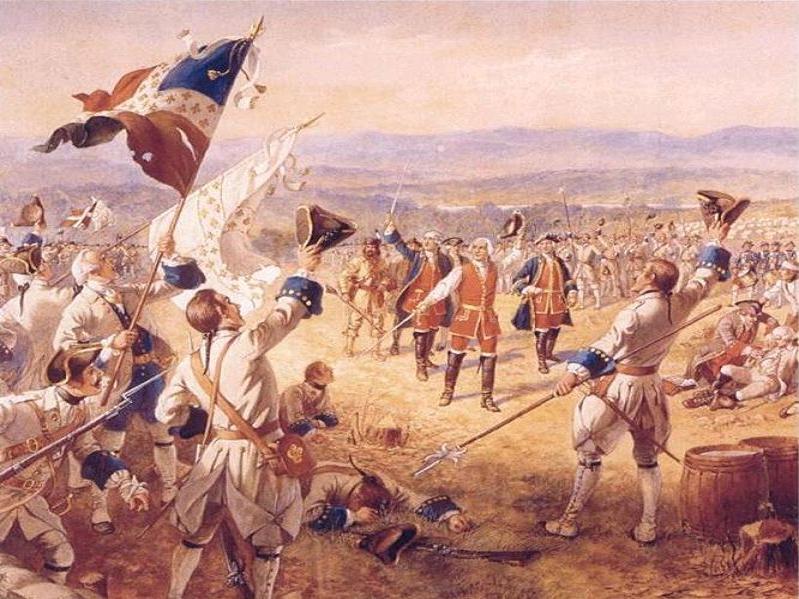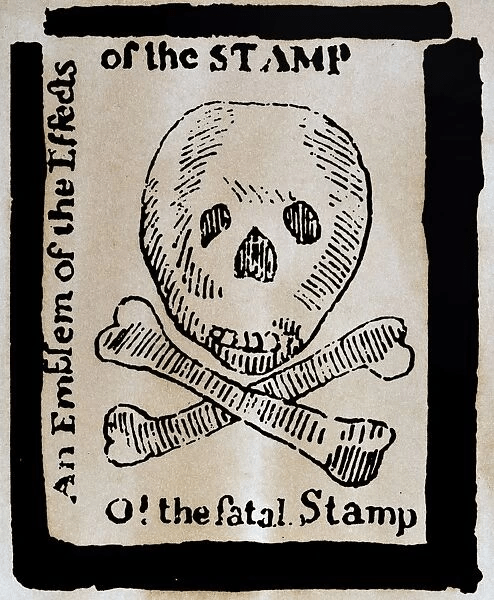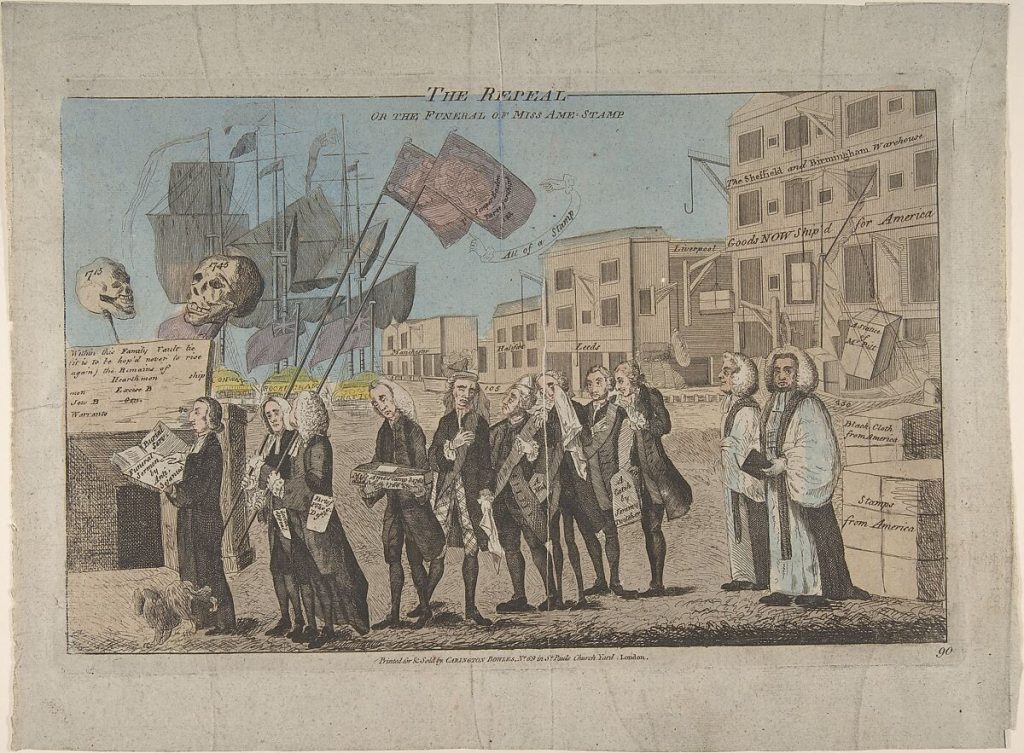Contents
Contents
The Declaratory Act was a law implemented by the British parliament in 1766. It stated that the British government had the complete authority to pass laws in the Thirteen Colonies, further inflaming tensions between the colonists and the government.
In this guide, we’ve explained what the Declaratory Act did, its historical context, and how the colonists reacted to the new law.
Historical context
In 1763, the British government had just won the Seven Years’ War. This was a complex, global conflict, which involved fighting against French and Native Indian allied forces in America for control of the Thirteen Colonies.

As a result of having to maintain their army overseas, the government was in a lot of debt once the conflict ended, and wanted to repay their war loans in part by taxing the colonists.
In 1764, the British implemented the Sugar Act, which resulted in new taxes on molasses and other goods sold in the Thirteen Colonies. The year after, parliament passed the Stamp Act, introducing new taxes on paper and other printed material.
In response, there was significant discontent in the colonies, leading to protests and other political movements in an attempt to undermine the new taxes.

The Thirteen Colonies were in a period of economic turmoil at the time. However, the actual size of the tax wasn’t the colonists’ biggest issue – it was that they had no representation in British parliament in return for the tax they were paying.
They thought it was unfair to pay tax to the British when they had no say in the matter, and no control over how the money would be used.
The Declaratory Act
On March 18 1766, the Stamp Act was repealed, less than a year after being introduced, in response to colonial backlash. Apart from organizing protests, the colonists also boycotted British imports, hurting them economically.

On the exact same day, the British parliament also passed the Declaratory Act.
The Declaratory Act stated that the British government had the complete authority to implement any new laws in the colonies that they wanted “in all cases whatsoever”.
The act did not directly levy any new taxes or implement other new restrictions on the Thirteen Colonies. However, it implied that new laws were coming in the future, and signaled that the British were prepared to continue taxing the colonists without offering any political representation in return.
For the British, the purpose of the Declaratory Act was to demonstrate that they still had total authority over the Thirteen Colonies, even though they had ceded to colonist pressure when it came to the Stamp Act.
It was also a signal of imperial strength, designed to show that the British Empire was still in complete control of its overseas territories.
Colonial reaction
When the news of what happened on March 18 reached America, most people in the colonies celebrated the repeal of the Stamp Act, which was seen as more significant than the introduction of the Declaratory Act.
However, many Patriot political leaders, such as James Otis Jr. and Patrick Henry were outraged by the language of the Declaratory Act. It showed that the United Kingdom was unwilling to listen to colonists’ grievances about their lack of representation in parliament. The Act also demonstrated that more taxes were on the way, and further oppression was to come.
In 1767-68, the British implemented the Townshend Acts – a series of harsh new taxes and rules designed to raise revenue, which the colonists regarded as extremely unfair.
There were significant protests against British authority in response to the Townshend Acts, leading to an escalation in the conflict between Patriots and Loyalists on the continent.
This continued escalation eventually led to the Boston Massacre, Boston Tea Party, and the Revolutionary War.


